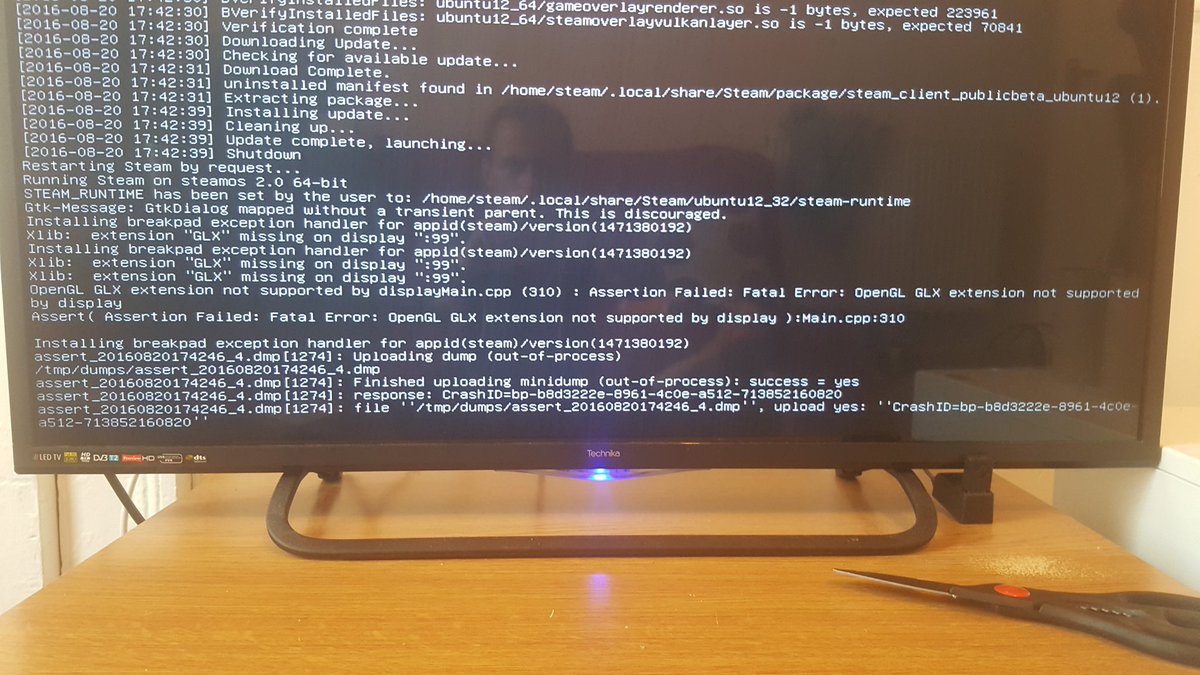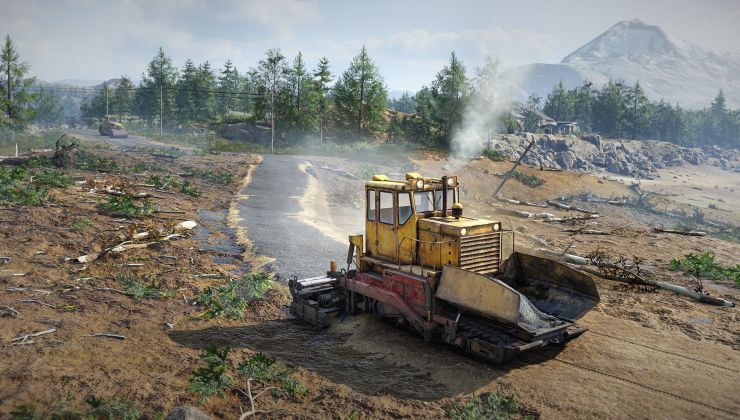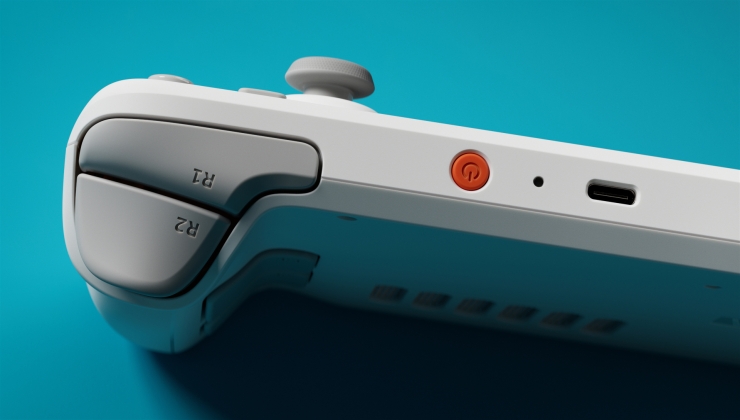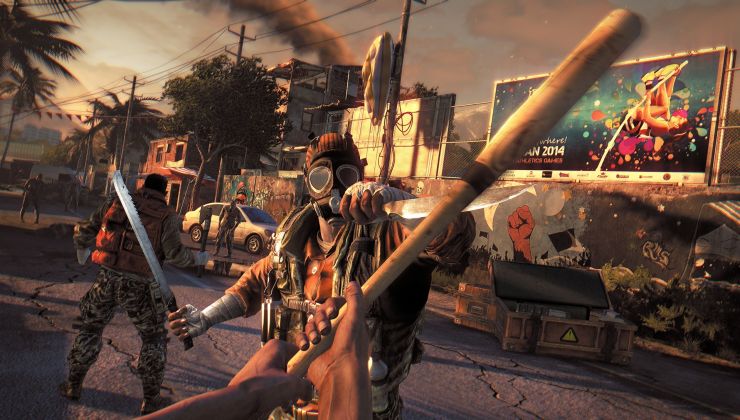I have been debating whether to write this up for a while, but here I am. I have completely ditched SteamOS in favour of Ubuntu Mate.
If you follow me on Twitter, you would have probably known this article was coming due to how frustrating an experience it has been for me.
I was spurred on due to the BoilingSteam website writing about it, and they echo some of my own thoughts and frustrations.
Recently I was sat with my son and wanted to play a point & click adventure game called Putt-Putt with him. SteamOS needed to restart to update, so I did and it just flashed into a black screen. We waited quite a long time to see if anything happened but nothing did. After rebooting, the system was completely broken with another black screen.
Oh god #SteamOS what have you done to yourself! pic.twitter.com/tQdzSuPuQs
— LiamLinux (@thenaughtysquid) August 20, 2016
I tried everything I could find to fix it. I trawled through the SteamOS help pages, ran their automated recovery scripts from the terminal and nothing worked, everything just resulted in the same black screen. Their help pages mentioned some recovery option that would reset SteamOS, but that doesn't seem to exist if you do the advanced install method (as I had multiple drives with other things on).
I'm not the only person this has happened to; I've seen quite a number of people have a "fatal error loop" requiring a re-install. That is the sort of thing that is going to put people off and already has in some cases. You can see a bug report here that was closed, but people are still having issues. There's another post here, another here and so on. Quite a few people get issues like this and it's not looking good.
That was the final nail in the coffin for my time with SteamOS. I don't have time to deal with such breakage.
That wasn't the first time SteamOS gave me a black screen. It has actually happened to me 3-4 times now, but this time it just didn't want to come back alive. A lot of hassle for something that's supposed to be console-like and be easier to work with to just load up and go. The whole thing feels like it's still in its infancy.
My PS4 has had problems before, so SteamOS certainly isn't alone in having issues, but the difference here is massive. On the PS4 I was able to boot into some sort of safe mode and essentially re-do the PS4 operating system. All achieved with a controller and without any terminals, no resorting to keyboard commands or anything of the sort.
My other issue is that, honestly, I feel like Valve themselves are doing very little for SteamOS to progress into something. Other than driver updates and security fixes they don't seem to be doing anything with it — not even talking about it anymore. I am hoping they have something planned for the next Steam Dev Days, but I'm not holding out hope for something SteamOS related there.
I feel like SteamOS is still missing even some of the most basic things that makes a console-like box attractive to a wider audience. Things like Netflix, Spotify and other simple but useful things like that. You may not agree with me, but everyone I know that owns a console uses a mixture of those two or both rather a lot.
They also missed an important feature of having a party-like system, where you can gather multiple people into a chat/voice chat easily on SteamOS. Something like that is rather essential for setting up games together. I tried it a couple times with Samsai and other people and the built-in voice chat never worked for any of us.
Hell, I feel Valve really missed the mark by not having any livestreaming options in SteamOS. They still haven't even put their own Broadcasting feature into the Linux desktop client nor the SteamOS build yet.
I later setup Ubuntu Mate and within about half an hour it was running solidly with Steam and everything was dandy. For someone like me with whom Linux is the norm, SteamOS is no better than a normal desktop distribution with Steam installed. Since you can have Steam boot directly into Big Picture mode it does seem a little pointless for me now personally. If Steam breaks on Ubuntu Mate, I can find ways to fix it on the same machine — and it won't take the whole machine with it like it will on SteamOS.
The Steam Controller is by far the most useful thing Valve has done recently. I will still happily play from my sofa on Linux thanks to this wonderful device. Thanks to it, I can stay on my sofa, come out of Steam Big Picture and still navigate to other things I want to do all without having to get closer to my TV with a keyboard and mouse.
I still believe SteamOS has its place though. On pre-built machines of course it is much easier (and likely more attractive to consumers) to have SteamOS sold on it, and it makes a good target for developers who use the line of "there's too many distributions". It has done a lot to help push Linux gaming, that goes without saying, but for me it's just not a good fit.
I don't think Valve plan to drop SteamOS any time soon nor do I think it has been a failure. A great experiment and something that has utterly catapulted Linux gaming to where it is now. If Valve ever do a big update to it, I may return to it to see if it's worth it, but considering the few minor updates it gets this may be a long ways off.
So, there ends my experimenting with SteamOS for now.
My final take on this whole experience is this: SteamOS is built for the people making systems and selling them, not for us in reality, Valve just provide it for us because they can. Valve only really care about the problems on the systems sold with it. So I would personally just steer clear of SteamOS unless you're buying it on a supported system.
How have you found your time with SteamOS? Have you also replaced it with a normal distribution like me? Let me know in the comments.
Yes, it broke one or two times and feels a bit like this is still a beta, but as I'm tech savvy and as this is not my main computer, I tolerate these issues, I have to concede however that it is NOT ready for a general audience, the system breaking after a random update without any reason is not acceptable.
I acknowledge the difficulties that steamOS can provide from a development POV, supporting all these different hardware configurations at the same time is quite a challenge and I think they have done a great job overall so far, I wish they would speed up the development, making the system more stable, and fix/improve key functionalities like recovery, to make it truly a viable option.
Performance wise linux/steamOS is "good enough", its generally a bit below windows (with a same game & equivalent hardware), but who cares if you have 63 or 79 fps, it will be comfortably playable in both cases, optimizations will come naturally as the platform gets more popular.
I think that a potential misconception of people, that I've witnessed a few times, is that SteamOS is a desktop OS made/optimized for gaming, it is not. It's a console/couch, operating system, I think Valve should insist more on that point. I enjoyed using it on my tv in the couch ("usually" just works™), but I wouldn't use it on my main desktop, there is absolutely no benefit to do so (quite the opposite).
---
Regarding the future evolution and potential success of SteamOS : to be a good couch device OS, it needs to have features/usefulness beyond steam.
SteamOS is not really an "OS", it feels more like a "bare metal steam big picture" experience, I wish they would really make an OS out of it, where I could conveniently and in an easy way install gamepad optimized, couch oriented applications (kodi, netflix, youtube,emulators,...)
I think one interesting, and in accordance with valve's spirit, way to provide this would be to use the community, crowd-source the customization of steamOS, provide a "SteamOS workshop", where people could create tweaks, customizations and app packages, that would definitely add a lot of value to the system and provide something that consoles don't.
This is definitely a huge challenge, and would need to be implemented in a careful way to answer security and stability concerns.
Last but not least, I'd like this OS/platform to be more open to the market, not a "valve only" domain.
It's definitely a long shot and I don't know how they would be able to pull this (and to be honest I'd be surprised if they would agree to do it).
If they manage to open this OS and attract other developers/stores, while it may reduce their market dominance on the platform, it would bring a lot more value to it and may be beneficial to them and the whole gaming community in the end.
Last edited by Furaah on 29 Aug 2016 at 7:27 pm UTC
Thanks for sharing your experience! I've considered to test Steam OS, but I'm very unsure now - are there any benefits over a "normal" Linux install, say Linux Mint for example? What distribution do you prefer for a pure gaming system? What system deliver maximal performance? I'm not a Linux professional (so I fear Arch Linux ;)) - but also I'm not a total beginner (don't want to start a 'distro war' here of course, just hoping for a few tips for the next fresh install).
Arch Installs aren't so bad, I've done probably 30. Here's the Steam Arch Install Guide that I use. It's been heavily drafted - throw up a virtual machine, if you have questions or suggestions leave a comment.
Being a primarily Windows gamer, I dove feet first into Linux by installing SteamOS on a second SSD. I learned a lot about how the OS works, and a lot about how to troubleshoot Linux in general. From there I installed OpenMediaVault on a second system as a NAS (Debian based, look it up. It's fantastic!) operating sytsem and learned more yet about Linux.
With every update to SteamOS I was hopeful that Valve would release Steam BPM apps like Netflix, Spotify, Youtube. My repeated disappointments led me finally to simply install Antergos in place of SteamOS. This allows me to appreciate the AUR. Hopefully, Valve will step up their game in the future. For now, it doesn't look like they plan on doing much more than maintenance. It's a shame, really.
For now, I use Windows for most of my gaming, but I look forward to a day when I can be 100% free of the Microsoft ecosystem.
With that attitude, I'm surprised some of you guys even put up with Linux. ;-)Hah good one. I've had my fair share of general Linux issues, but most of them easily solved. SteamOS is a different kind of beast though, as it's not all that well documented, especially when it comes to problems. Where as other distibutions are a very quick google away from fixing usually.
Thanks for sharing your experience! I've considered to test Steam OS, but I'm very unsure now - are there any benefits over a "normal" Linux install, say Linux Mint for example? What distribution do you prefer for a pure gaming system? What system deliver maximal performance? I'm not a Linux professional (so I fear Arch Linux ;)) - but also I'm not a total beginner (don't want to start a 'distro war' here of course, just hoping for a few tips for the next fresh install).Personally, I always find Ubuntu to be the one that really does just work 99% of the time, it's the most used and most tested on distribution.
Edit: spelling error
Last edited by Liam Dawe on 29 Aug 2016 at 7:45 pm UTC

That's hopeful at least. Unity performance has really taken a large step in the right direction, lately. I recently tested the alpha of the System Shock reboot on Windows and Linux and got overall about 99% performance parity.
1- Opt for the beta.
Problem: as it's not easy to opt out of the beta, if a future beta broke the system, I'd be forced to perform a complete reinstallation.
2- Remain in 2.64 and wait until 2.88 is stable.
Problem: I must be careful not to upgrade the system. Otherwise, the only solution would be a complete reinstallation.
3- Opt for the Liam's solution and use a different distro.
Problem: This solution is, in fact, a complete reinstallation itself. In my case, it's be archlinux, as it's what I use both in my PC and my tablet.
I bougth a Steam Machine because I didn't want to customize anything. I wanted a gaming linux PC as easy to use as a PS or an XBOX. Honestly, I'm dissapointed with SteamOS, I expected an extremely stable OS, solid as a rock.
Last edited by DeM on 29 Aug 2016 at 8:46 pm UTC
Now that we all admitted SteamOS is dead, can we get our Tux logo back on Steam store pages? ;)
My silent wish every time browsing about Steam store.
I haven't tested it out myself, though, as gaming is not very high up my list of things to do on a PC.
Before I was on Kubuntu 14.04 LTS but I have to say that Debian is actually faster... but a bit more complicated to install at first.
Whenever I try to play any games that do not include dedicated options for vertical sync, mostly 2D games like Cave Story or Stardew Valley, I have always gotten chronic screen tearing on the PC. It happens in Xubuntu 12.04, 14.04, 16.04, Linux Mint Maya, Ubuntu 12.04, 14.04, 16.04, and yes... even Windows XP and Windows 7! I've tried fiddling with Nvidia driver settings, tried different desktop environments, all to no avail.
The only place I've ever seen most all 2D games run without screen-tearing is on consoles... and SteamOS!
I don't know what what black magic it uses, and I don't care. Screen-tearing is one of my most hated graphical glitches, especially in 2D games, and I play a lot of 2D games.
Seriously, for that alone I am sticking to SteamOS for games.
Now that we all admitted SteamOS is dead, can we get our Tux logo back on Steam store pages? ;)
I don't think Steam Machines are dead, I don't think they were ever really alive. When they started there wasn't enough in terms of games for them to go anywhere. I think Valve was right to not make a big push for Steam Machines without the games to support them, it may have damaged the potential beyond recovery. I think their failure was being to optimistic in the beginning. They ported most of their games quick and thought everyone else could to. Maybe they could have thrown a bunch of money at developers/publishers to bring more games faster but we don't really know what happened there. I don't think it was realistic to have expected it to happen faster. The games are really coming along though, I've got a pretty massive amount of games in my Library now that support Linux/SteamOS and there are a good chunk more coming (Two Worlds II, Civ 6, Shadow Warrior 2, Maybe's but I'll believe it when I see it: Mad Max, Rocket League, Hitman, Deus Ex MD, Street Fighter V, Homefront Revolution, Evolve). I think only recently has the potential for Steam Machines to succeed been created.
Personally I think they were waiting until a big push would be successful and not do more harm than good. The potential is there now, whether Valve will do anything with it or not remains to be seen.
I think the potential is hard to wrap your head around without visualizing so here is a list of BIG games we have now we didn't a short time ago, off the top of my head.
Dead Island
Dead Island Riptide
Dying Light
Two Worlds
Saints Row 2
Saints Row 3
Saints Row Gat Out of Hell
Saints Row IV
The Witcher 2
Dirt Showdown
Grid Autosport
F1 2015
Alien Isolation
Xcom Enemy Unknown
Xcom 2
Lord of the Rings - Shadow of Mordor
Tomb Raider 2013
Life is Strange
KOTOR II
Civ 5
Borderlands 2
Borderlands PreSequel
Shadow Warrior
Company of Heroes II
Total War Medieval II
Total War Empire
Spec Ops the Line
Arma III (still need current version but I believe this will happen soon)
Bioshock Infinite
Overlord I
Overlord II
Left for Dead 2
Portal
Portal 2
Half Life 2
Team Fortress 2
Pillars of Eternity
Divinity Original Sin
Magica 2
Metro 2033
Metro Redux
Payday 2
Brutal Legend
There are also some big games that run on Linux and have for a while but aren't available in steam
Minecraft
Quake 4
Doom 3/BFG
Unreal Tournament 2004
Unreal Tournament 4
Getting some kind of easy setup/third party SteamOS repo for these that is point/click setup, can grab game data files from the CD's or straight through steam would be huge. The repo could also address Netflix, Skype, Spotify, Kodi (which is awsome for DLNA) for which licensing or whatnot may be an issue.
And there's a huge amount of really good smaller/indie games. Of course there are massive titles we don't have that really hurt but no platform has everything. It could go either way right now, but I have some faith in Valve. They aren't like Loki, Valve isn't going bankrupt tomorrow. Steam didn't do great when it released, just like Steam Machines a lot of people hated Steam, said it was worthless and pointless. I think it is silly to say Steam Machines are dead.
Dell is still in, and made a statement about a lot more games coming to the platform. If Dell makes a big push, Valve makes a big push, most of the games coming down the line release and Valve improves SteamOS the Steam Machines could be huge. If not I guess they'll die, very prematurely. More like an abortion or a miscarriage than a death.
That said as a Linux user I don't and probably never will be very interested in SteamOS, as others have said it doesn't offer me anything I don't have. I do buy a lot of games that support Linux, and I no longer buy any that don't.
Last edited by m2mg2 on 29 Aug 2016 at 9:24 pm UTC
I switched back to Ubuntu 16.04 but since I wanted the SteamOS experience I built "my Steambuntu" with this tutorial:
http://steamcommunity.com/sharedfiles/filedetails/?id=388020830
1- Start installing your favored Ubuntu based distro;
2- Create an admin account named "desktop" and another one named "steam";
3- Add the repository for SteamOS Compositor, SteamOS Modeswitch Inhibitor and SteamOS Plymouth theme found in the comments (who is that guy?! Lol!);
sudo add-apt-repository ppa:mdeslaur/steamos
sudo apt-get update
4- Follow the tutorial to install what is required;
sudo apt-get install steamos-compositor
sudo apt-get install steamos-modeswitch-inhibitor
5- Install SteamOS plymouth theme;
sudo apt-get install plymouth-themes-steamos
6- Switch the desktop session for the steam account to SteamOS and activate autologin (no password) for this account.
Sit back and enjoy!
You won't even notice that it's Ubuntu running in the background and look what happens if you switch to the desktop via BPM. All that is missing is the shortcut to go back to Steam.
You might have to activate a no password login to your desktop account to make it work... I don't know because I created another account for admin and made desktop a standard "no-password" user.
Just tell me if I forgot something, I did it in a hurry...
Edit: I must admit that I wrote it for those of you who have good knowledge of Linux basics... Lots of things you have to guess. These are general guidelines.
Last edited by Mohandevir on 29 Aug 2016 at 11:14 pm UTC
Now that we all admitted SteamOS is dead, can we get our Tux logo back on Steam store pages? ;)The irony, of course, is that if SteamOS goes away then, in all likelihood, so does Linux, at least as far as Valve's grand experiment in gaming is concerned.
AMDGPU+Mesa is nearly there already, both in terms of performance, stability and OpenGL support. Not sure about Vulkan... AMD promised a free software release but no specifics. Also no mention of Crossfire support for OpenGL games. Aside from that, AMD drivers will provide a great out-of-the-box experience with nothing more than a proprietary firmware blob (which hopefully AMD will find a solution for too, eventually). Should make SteamOS much more reliable.














 How to set, change and reset your SteamOS / Steam Deck desktop sudo password
How to set, change and reset your SteamOS / Steam Deck desktop sudo password How to set up Decky Loader on Steam Deck / SteamOS for easy plugins
How to set up Decky Loader on Steam Deck / SteamOS for easy plugins
See more from me